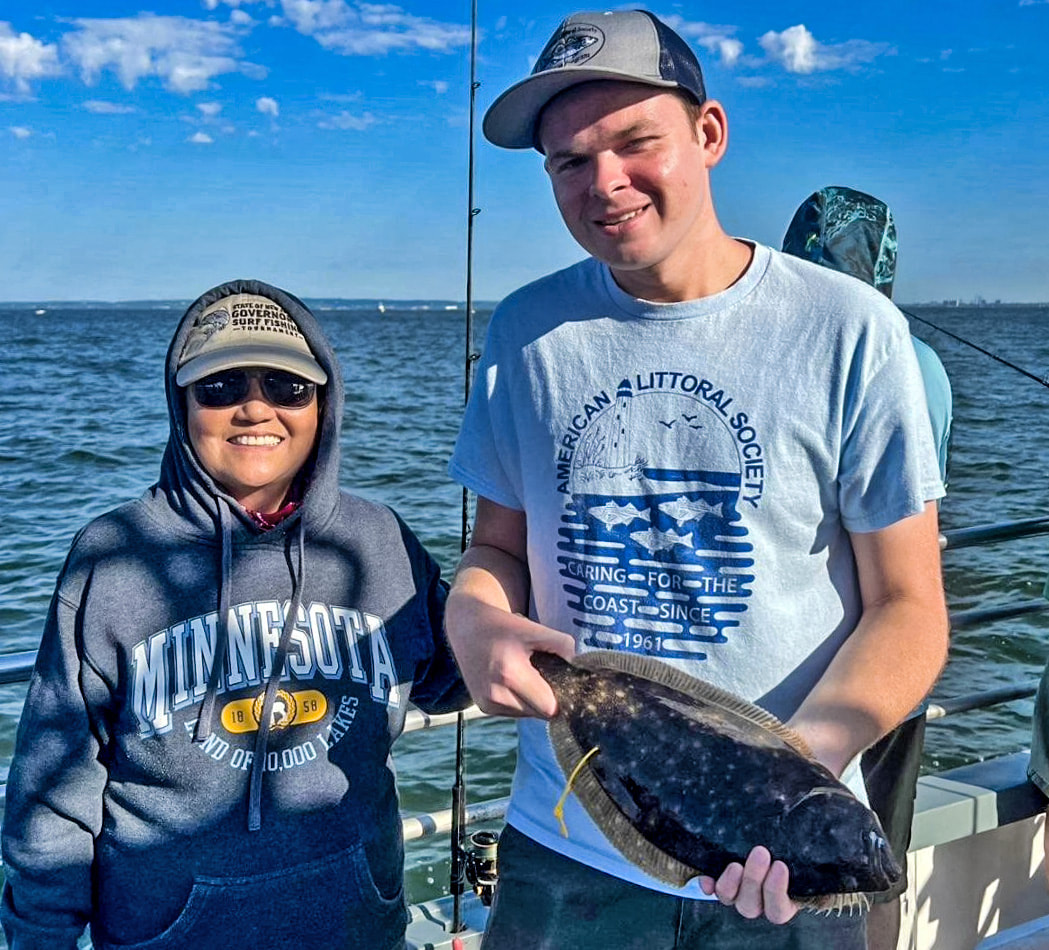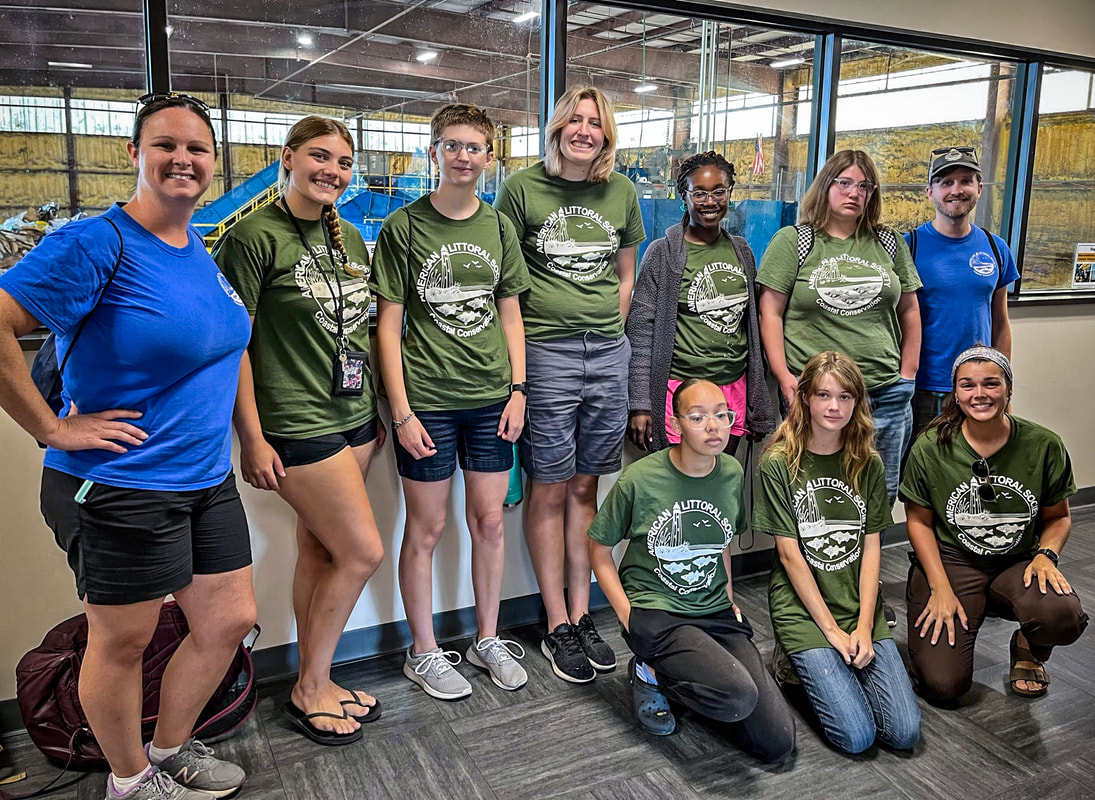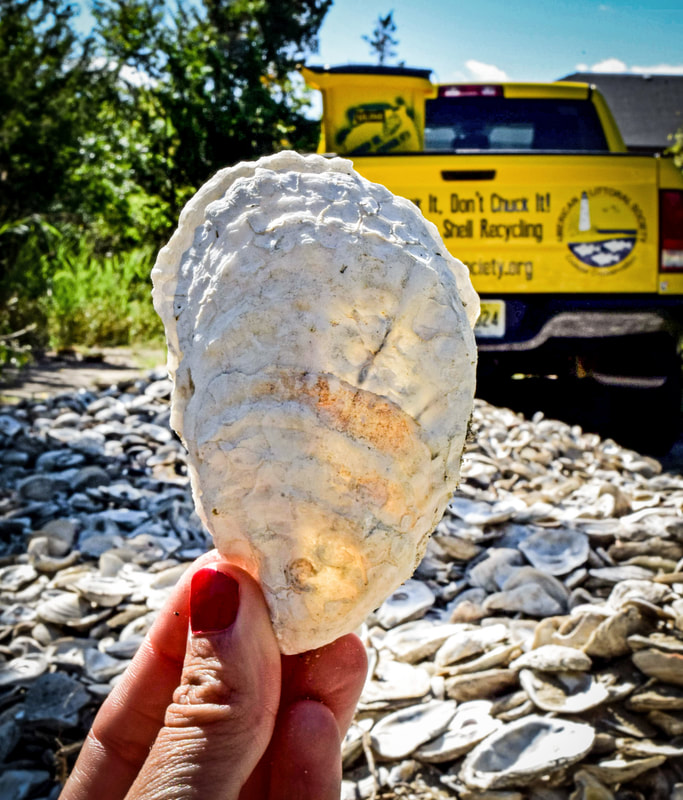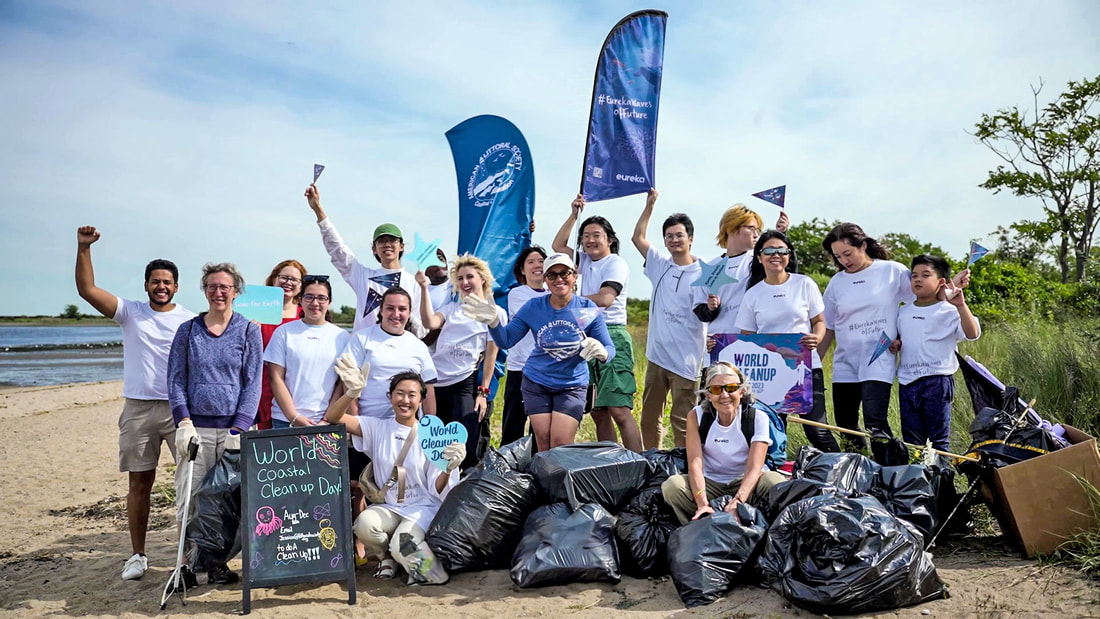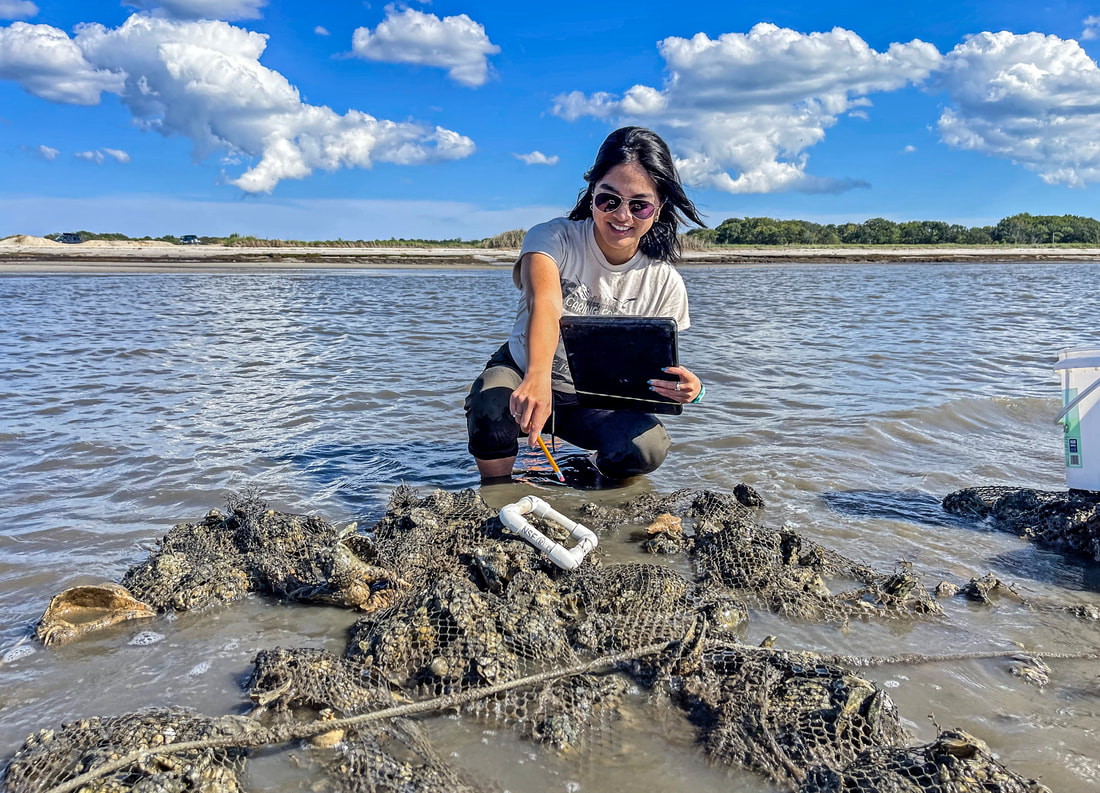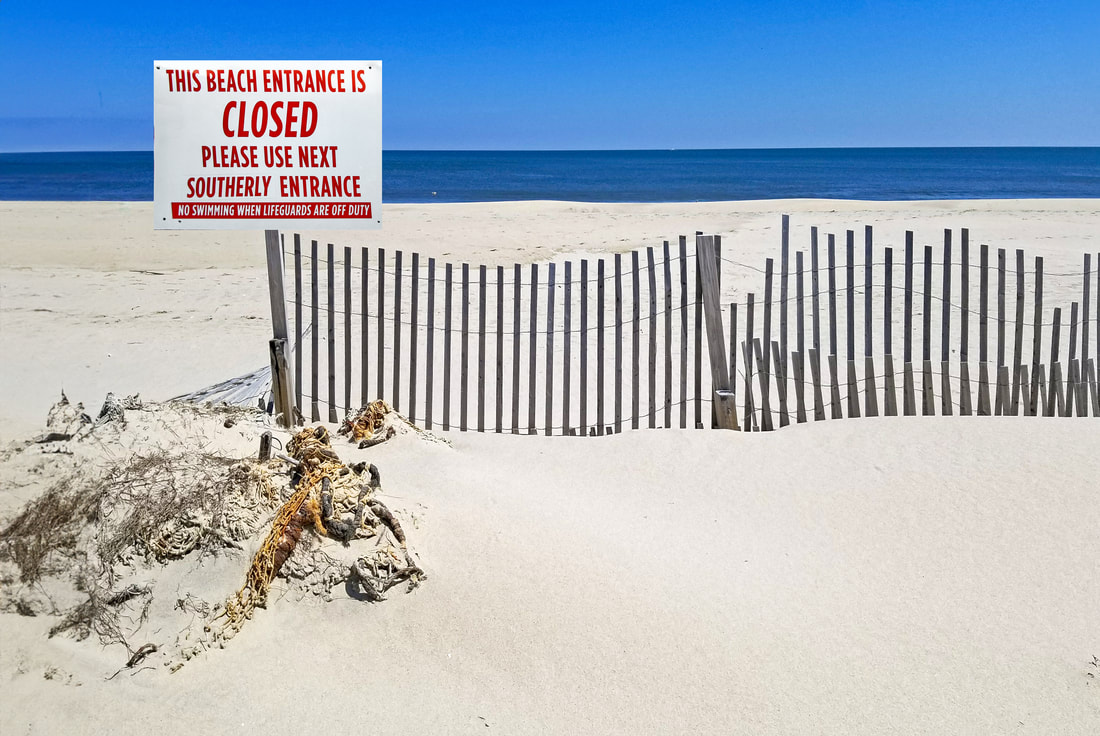|
The sun was shining on Sunday, August 27, and the sea breeze whispered secrets of adventure as 31 eager anglers gathered on board the Mi-Jo 2 for the American Littoral Society's Annual Fluke Tagging Trip. The day delivered some unforgettable memories and contributed to the sustainable fishing efforts of our fish tagging program.
Each angler played a vital role in this mission but some of them stood out with remarkable tagging achievements:
While tagging was the primary goal of the trip, we couldn't help but be thrilled by the quality of the fish we encountered. In total, 12 fluke over 17 inches were reeled in. Among these, the largest fluke caught measured an impressive 22.5 inches. The turn of the season is a good opportunity to recap some of the summer work from the Littoral Society's Delaware Bayshore office including the accomplishments of the dedicated R-Corps interns and the unveiling of a new rain garden at an elementary school in Vineland, NJ.
R-Corps: A Summer of Conservation Nine passionate and driven young people joined the Delaware Bay R-Corps team this summer. Their collective efforts spanned a diverse range of projects, each contributing to the larger mission:
Recently the "Shuck It, Don't Chuck It!" program, the American Littoral Society's shell recycling initiative, collected its millionth shell. That shell also brought our overall total of shells recycled to nearly 37,000 pounds this year and 32 tons since the program launched in 2015.
This incredible milestone wouldn't have been possible without the dedication and support of our amazing supporters. Funded by grants and driven in large part by volunteer oyster wranglers and community helpers - such as participating restaurants - each shell collected represents a step towards the long-term goal of re-oystering New Jersey's bays and estuaries. The shells we collect take a full-circle journey, from briny waters to your plate, then to our bins, and eventually back to our shorelines where they can help spawn more oysters. By recycling these shells, we're not only reducing waste that ends up in landfills but also providing essential material for the Littoral Society's shoreline restoration projects such as the reefs we've built to protect locations along Delaware and Barnegat Bay. These reefs also play a role in improving water quality and providing habitat for marine life. On Saturday, September 16, the Northeast Chapter of the American Littoral Society kicked off the 38th Annual New York State Beach Cleanup (NYSBC) season by hosting a beach cleanup just north of Broad Channel, NY. On the same day, NYSBC volunteers gathered at dozens of beaches around the state, from Long Island to New York's Great Lakes.
These cleanups were timed to coincide with International Coastal Cleanup Day and World Cleanup Day (both recognized on the third Saturday of September). International Coastal Cleanup Day began in 1986 through the Ocean Conservancy and quickly grew into an global effort to rid beaches of garbage while also raising awareness about preserving and protecting the world’s oceans and waterways. World Cleanup Day is coordinated by the global organization Let's Do It! World, which is headquartered in Tallinn, Estonia. The Jamaica Bay cleanup was sponsored by Resorts World NYC, New York City’s first and only casino-hotel, and Eureka (founded in 1909 as one of the first US vacuum cleaner brands) through the company's #EurekaWavesOfFuture campaign. The #EurekaWavesOfFuture initiative highlights the pressing concern of marine pollution. by Toni Rose Tablante, American Littoral Society Habitat Restoration Technician The Delaware Bay is home to the largest population of spawning horseshoe crabs [Limulus polyphemus] in the world. The crabs are a keystone species because they and their eggs are crucial to an entire ecosystem that includes migrating shorebirds, various fish, numerous aquatic invertebrates, and other marine life.
The American Littoral Society has been restoring horseshoe crab habitats along the New Jersey side of the Delaware Bay since Hurricane Sandy hit in 2012. The work also includes biological assessments at some beaches to help document how the work is affecting the restoration site and aquatic creatures. The 2023 reef biodiversity monitoring season recently began. Read on to learn more about the monitoring process. As the 2023 Summer season came to a close, conflict arose again over public access to beaches at two locations in New Jersey.
This is an issue on which the American Littoral Society has repeatedly taken a stand, through lawsuits against entities attempting to limit public access and by helping to develop state laws that define what constitutes meaningful access. On August 10, 2023, the Ocean Grove Camp Meeting Association – a Methodist organization that owns the land occupied by Ocean Gove, NJ – was warned in writing by the NJ Department of Environmental Resources that its practice of putting up chain-and-pad-lock at beach access on Sunday mornings was a violation of state law. Then, in early September, almost all beach entrances in Point Pleasant Beach were abruptly closed by Jenkinson’s, a private company that owns the boardwalk and dry-sand area of the beach, as well as an aquarium and other attractions in the town. "The beach is a public resource for all of us, not only swimmers and bathers, but also fisherman, surfers, birders and many other users, whose use is not confined to the summer season or normal business hours," said Tim Dillingham, Executive Director of the American Littoral Society. "Blocking public access to our beaches for any reason—whether it be to promote a private or financial interest, religion or exclusivity—is contrary to the inherent right of the public to access the shore." |
Archives
July 2024
Categories
All
|

